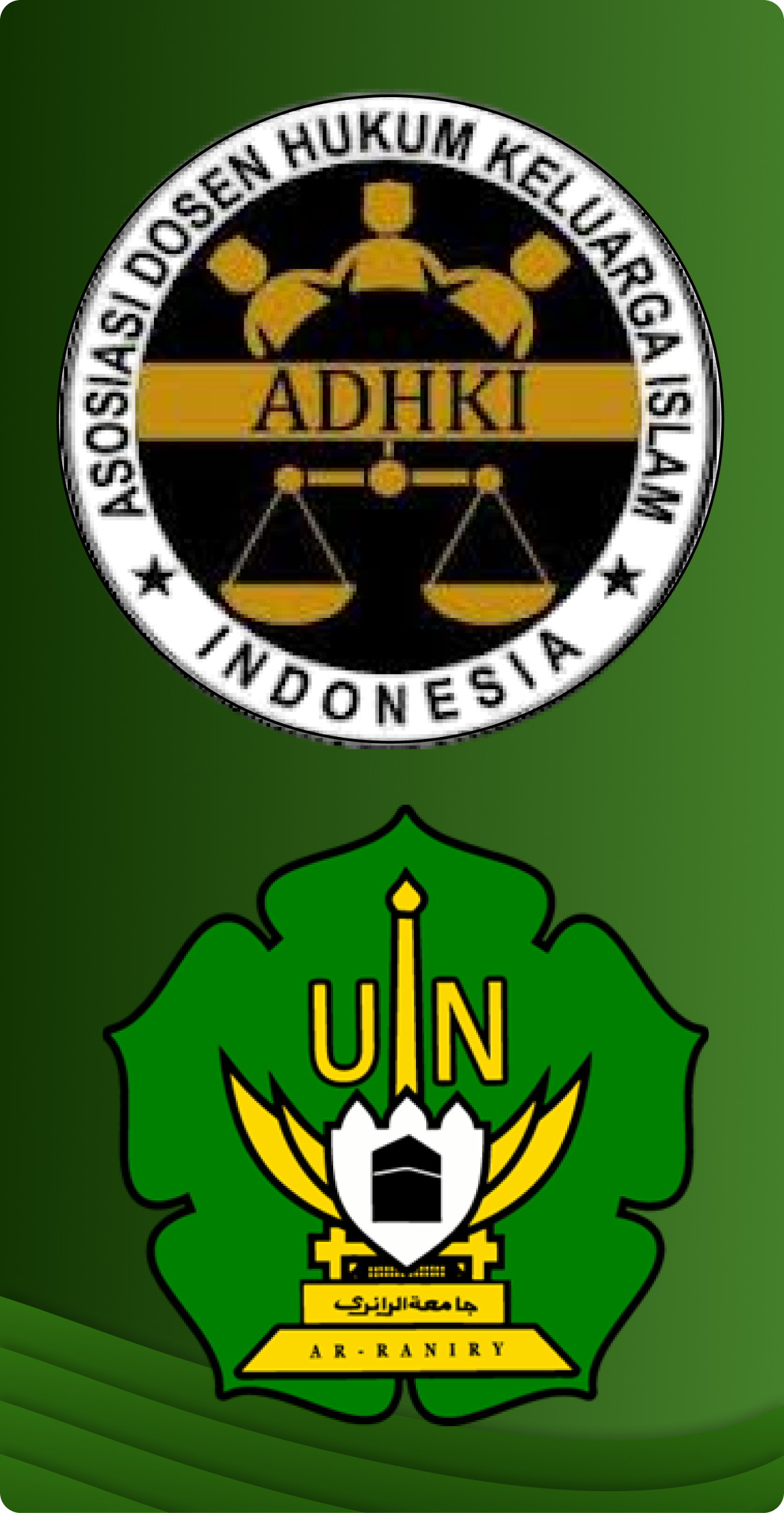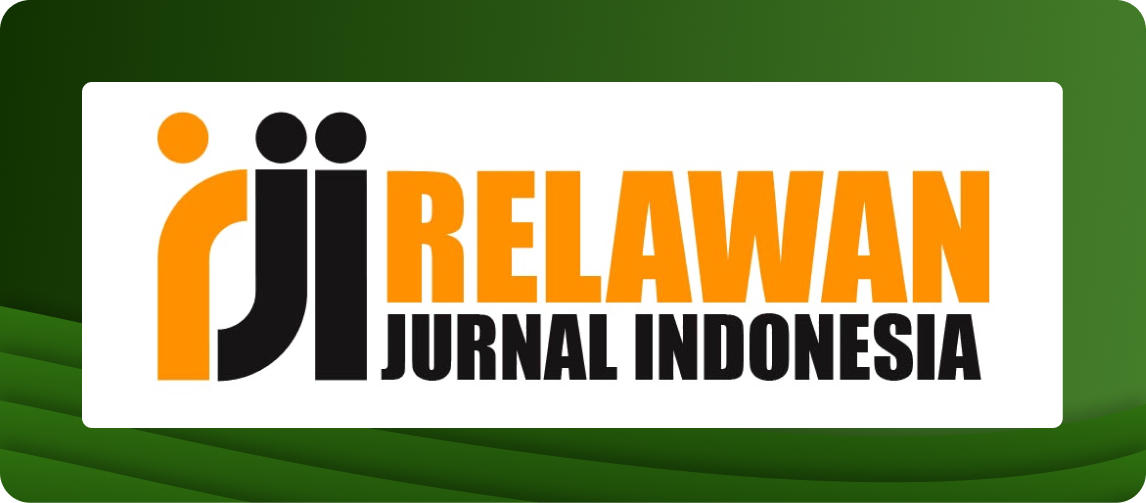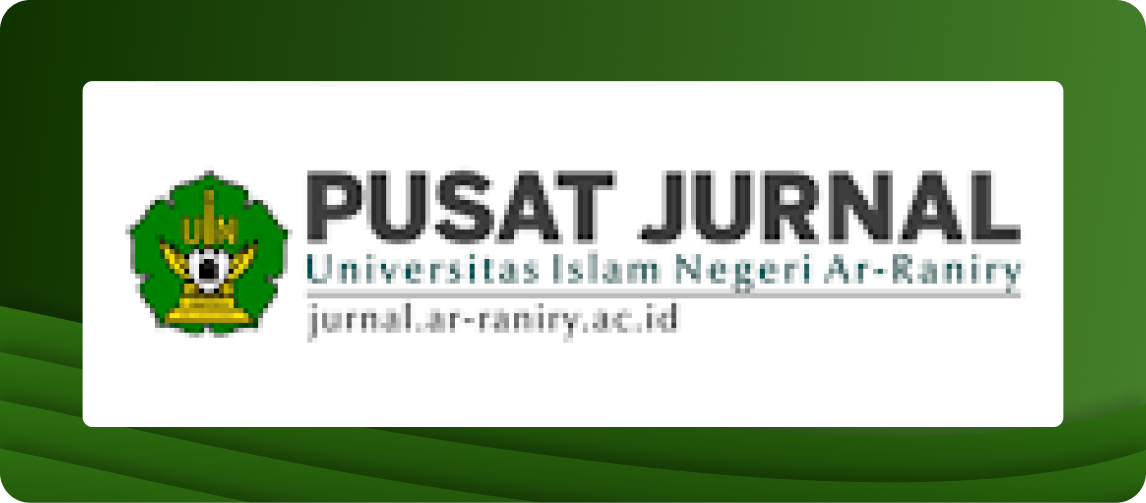Resolving Land Disputes Through Land Offices and Customary Institutions
Perspectives from National and Customary Law in Aceh
DOI:
https://doi.org/10.22373/tqcdmt70Keywords:
Customary Institutions , Land disputes , Land OfficeAbstract
Land disputes, which frequently arise, require comprehensive policies and integrated solutions for effective resolution. At the national level, the government has issued technical regulations through Ministerial Regulations. In Aceh, however, land dispute resolution also falls under the jurisdiction of regional laws, including the Aceh Governance Law and Qanun, which reflect customary practices. This study employs an empirical legal research method, using a socio-legal approach to analyze how law operates within the society. Data were collected through in-depth interviews and document analysis. Respondents included officials from the Land Office, members of the Aceh Customary Council (MAA), customary leaders, academics, and local community members. Documents reviewed consisted of legal regulations, case reports, journal articles, and academic texts related to land disputes. The study finds that the Land Office resolves land disputes through a multi-step process: Case Study, Preliminary Assessment, Investigation, Presentation of Findings, Coordination Meeting, Final Assessment, and Case Resolution. However, traditional leaders and institutions such as the Aceh Customary Council have not been involved in this process, despite their official role in supporting governance, development, community affairs, and social conflict resolution. Currently, the Land Office and customary institutions operate independently, each following its own procedures. The study argues that a more integrated approach between the two entities could enhance the effectiveness of land dispute resolution. Such collaboration would strengthen the legitimacy and public trust in both institutions. Furthermore, customary law has demonstrated its capacity to resolve societal conflicts, including land disputes, thereby underscoring the value of incorporating traditional mechanisms into formal legal processes.
References
Journal and Books
Abbas, Syahrizal, Mediasi dalam Hukum Syariah, Hukum Adat, dan Hukum Nasional, Jakarta: Kencana, 2009.
Arba, H. M. Hukum Agraria Indonesia, Jakarta: Sinar Grafika, 2015.
Aremu, Tijani Abdul Lateef, Musa Jeje Ibrahim Aladire, and Alimi Lawal Sikiru. “An Assessment of Independent Sharī’a Panel (ISP) and Its Roles in Resolving Marital Conflicts in Osun State of Nigeria.” Al-Ahkam 32, no. 2 (2022). https://doi.org/10.21580/ahkam.2022.32.2.12598.
Boboy, Juwita Tarochi, et.al., “Penyelesaian Sengketa Pertanahan Melalui Mediasi Berdasarkan Teori Dean G. Pruitt Dan Jeffrey Z. Rubin, Notarius 13, No. 2 (2020).
Efendi, Jonaedi and Jhonny Ibrahim, Metode Penelitian Hukum: Normatif dan Empiris, Jakarta: Kencana, 2018.
Fahmi, Chairul, et.al., “The State’s Business Upon Indigenous Land in Indonesia: A Legacy from Dutch Colonial Regime to Modern Indonesian State,” Samarah 8, No. 3 (2024). http://dx.doi.org/10.22373/sjhk.v8i3.19992.
Firdaus Arifin, Ihsanul Maarif, Rika Kurniasari A, and M. Nabiel Fadlilah. “Resolving Village Head Election Disputes: Legal Pathways in State Administrative Courts.” Nurani: Jurnal Kajian Syari’ah Dan Masyarakat 24, No. 2 (2024), https://doi.org/10.19109/nurani.v24i2.23116.
Guntur, Muhammad, “Analisis Kebijakan Kepemilikan Hak Atas Tanah Tumpang Tindih Dalam Perspektif Peraturan Pemerintah No. 24 Tahun 1997,” Indragiri Law Review 2, No. 3 (2024). DOI:10.32520/ilr.v2i3.57
Hajad, Vellayati, et.al., “Land Politics and Food Security: A New Perspective on Land Degradation in Indonesia,” Jurnal Ilmiah Peuradeun 13, No. 2 (2025). https://doi.org/10.26811/peuradeun.v13i2.1304.
Hamidi and Moh Abdul Latif, “Penyelesaian Sengketa Pertanahan Di Wilayah Madura Secara Mediasi Oleh Badan Pertanahan Nasional,” Yudisia: Jurnal Pemikiran Hukum Dan Hukum Islam 12, No. 1 (2021).
Hayati, Mila, et.al., “The Role of the Regional Office of the National Land Agency Aceh Province in Settlement Land Disputes,” International Journal of Multicultural and Multireligious Understanding 8, No. 6 (2021). http://dx.doi.org/10.18415/ijmmu.v8i6.2913.
Hernoko, Agus Yudha, Hukum Perjanjian Asas Proporsionalitas dalam Kontrak Komersial, Jakarta: Kencana, 2010.
Hidayatullah, Muhammad Syarif, and Rahmat Fadillah. “Economic and Legal Dimensions of Collateral Existence in Modern Mudhârabah Contracts: Understanding the Relationship between Risk Management, National Law, and Contemporary Fiqh.” Al-Manahij: Jurnal Kajian Hukum Islam, (2022). https://doi.org/10.24090/mnh.v16i2.6860.
Jaelani, Abdul Kadir, Anila Rabbani, and Muhammad Jihadul Hayat. “Land Reform Policy in Determining Abandoned Land for Halal Tourism Destination Management Based on Fiqh Siyasah.” El-Mashlahah 14, No. 1 (2024). https://doi.org/10.23971/el-mashlahah.v14i1.8051.
Ikhsan, Edy, and Saidin Saidin, “Analysis of Land Rights Ownership Deli Spoorweg Maatschappij in Medan, Sumatera Utara, Indonesia,” Cogent Social Science 9, No. 2 (2023). https://doi.org/10.1080/23311886.2023.2286666.
Imasya, Samun, Pengantar Hukum Agraria, Yogyakarta: Graha Ilmu, 2011.
Ismail, Faisal Husen, et.al., “Customary and Islamic Practices in Inheritance Distribution: Insights from The Gampong Customary Court in Pidie,” al-Risalah 24, No. 2 (2024). https://doi.org/10.30631/alrisalah.v24i2.1544
Khoidin, M. et.al., Eksistensi Pengadilan Adat Dalam Sistem Peradilan di Indonesia, Surabaya: Laksbang Justitia, 2014.
Kurniawan, Kharis Fadlan Borni, et.al., “Territorialization of Plantation Concessions: Customary Land Acquisition Process, Agrarian Fragmentation and Social Resistance,” Cogent Social Science 9, No. 2 (2024). https://doi.org/10.1080/23311886.2024.2367259.
Lego Karjoko, Abdul Kadir Jaelani, Hilaire Tegnan, Henning Glaser, Muhammad Jihadul Hayat. “Islamic Court’s Approach to Land Dispute in Inheritance Cases.” AHKAM : Jurnal Ilmu Syariah 21, No. 2 (2021). https://doi.org/https://doi.org/10.15408/ajis.v21i2.21864.
Majelis Adat Aceh, Pedoman Peradilan Adat di Aceh, Cet. Edisi ke-2, Banda Aceh: Majlis Adat Aceh, 2012.
Matondang, Ikhwan. “Resolving Human Rights Violation Cases in Aceh, Indonesia.” Al-Risalah: Forum Kajian Hukum Dan Sosial Kemasyarakatan 24, No. 1 (2024). https://doi.org/10.30631/alrisalah.v24i1.1539.
Matsyah, Ajidar, Mursyid Djawas, Umar Bin Abdul Aziz, Dedy Sumardi, and Abidin Nurdin. “Cultural Continuity and Legal Adaptation: The Evolution of Suluh in Aceh’s Conflict Resolution System.” JURIS (Jurnal Ilmiah Syariah) 24, No. 1 (2025). https://doi.org/10.31958/juris.v24i1.13272.
Munisah, Munisah, Ahmadi Hasan, Gusti Muzainah, and Yusuf Setyadi. “Barambangan: Dynamics and Challenges in Resolving Husband and Wife Disputes in the Banjar Community.” Syariah: Jurnal Hukum Dan Pemikiran 23, No. 1 (2023). https://doi.org/10.18592/sjhp.v23i1.10290.
Mudjiono, “Alternatif Penyelesaian Sengketa Pertanahan Di Indonesia Melalui Revitalisasi Fungsi Badan Peradilan,” Jurnal Hukum 14, No. 3 (2007).
Mujiburohman, Dian Aries, et.al., “The Patterns of Ownership and the Registration of Customary Land in Manggarai Regency, Indonesia,” Jurnal Ilmiah Peuradeun 12, No. 1 (2024). https://doi.org/10.26811/peuradeun.v12i1.969
Mulyadi, Lilik, Menggagas Konsep Ideal Peradilan Adat Indonesia Masa Mendatang, Jurnal Varia Peradilan, Tahun XXIX No. 342, Jakarta: Ikatan Hakim Indonesia, (2014).
Nurdin, Abidin, “Revitalisasi Kearifan Lokal di Aceh: Peran Budaya dalam Menyelesaikan Konflik Masyarakat,” Analisis: Jurnal Studi Keislaman 13, No. 1 (2013). https://doi.org/10.24042/ajsk.v13i1.645.
Prawira, Suwardhie Sasro, “Penyelesaian Sengketa Tanah Melalui Mediasi: Studi Kantor Pertanahan Kabupaten Bantaeng,” Journal of Lex Philosophy 1, No. 1 (2020). DOI: 10.52103/jlp.v1i1.23.
Pelupessy, Eddy, “The Land Rights of Indigenous Peoples: Revaluation of Papua Special Autonomy,” Hasanuddin Law Review 3, No. 1 (2017). http://dx.doi.org/10.20956/halrev.v3i1.1047.
Saifuddin, Bandaharo and Marwan Busyro, “Proses Penyelesaian Sengketa Hak Atas Tanah Melalui Mediasi Di Kantor Pertanahan Kota Padangsidimpuan,” Jurnal Ilmiah Muqoddimah 7, No. 1 (2023). DOI:10.31604/jim.v7i1.2023.115-124.
Sudirman, Sudirman, Irwan Abdullah, Saifuddin Zuhri Qudsy, Fakhruddin Fakhruddin, and Syabbul Bachri. “Dysfunction of Muslim’s Public Resource: A Study of Waqf Land Disorganization in Indonesia.” De Jure: Jurnal Hukum Dan Syar’iah 14, No. 1 (2022). https://doi.org/10.18860/j-fsh.v14i1.16240.
Sukarmadji, Sri Hayati Agus dan Sri Winarsih, “Model Penyelesaian Sengketa Pertanahan Melalui Mediasi Dalam Mewujudkan Penyelesaian Yang Efisiensi Dan Berkepastian Hukum,” Jurnal Dinamika Hukum 14 No.1 (2014).
Sururi, Lailan, et.al., Penyelesaian Sengketa Melalui Peradilan Gampong, Kanun Jurnal Ilmu Hukum 21, No. 1 (2019).
Syarif, Muhammad and Musfira, “Menyinergikan Peradilan Adat Dalam Penguatan Syariat Islam Di Aceh, Kalam: Jurnal Agama dan Sosial Humaniora 11 No. 1 (2023).
Taqwaddin, Aspek Hukum Kehutanan dan Masyarakat Hukum Adat di Indonesia, Yogyakarta: Intan Cendikia, 2011.
Taqwaddin, Penyelesaian Sengketa/Perselisihan Secara Adat Gampong di Aceh, Kanun: Jurnal Ilmu Hukum, No. 67, (2015).
Utomo, Setiyo, “Problematika Tumpang Tindih Status Kepemilikan Tanah,” Jurnal Hukum Bisnis Bonum Commune (2023). 10.30996/jhbbc.v6i2.8356.
Yusuf, Januddin Muhammad and Nawir Yuslem, “Acehnese Dayah Ulama's Response to the Use of 'Urf in Istinbath of Fiqh Law from Islam Nusantara,” al-Istinbath: Jurnal Hukum Islam 8, No. 1 (2023). https://doi.org/10.29240/jhi.v8i1.5732
The Role of Laws
Kitab Undang-Undang Hukum Perdata.
Peraturan Menteri Agraria dan Tata Ruang/Kepala Badan Pertanahan Nasional Nomor 21 tahun 2020 tentang Penanganan dan Penyelesaian Kasus Pertanahan.
Peraturan Pemerintah Nomor 24 Tahun 1997 tentang Pendaftaran Tanah.
Qanun Aceh Nomor 10 Tahun 2002 tentang Peradilan Syariat Islam.
Qanun Aceh Nomor 10 Tahun 2008 tentang Lembaga Adat.
Qanun Aceh Nomor 4 Tahun 2003 tentang Pemerintahan Mukim dalam Provinsi Nanggroe Aceh Darussalam.
Qanun Aceh Nomor 9 Tahun 2008 tentang Pembinaan Kehidupan Adat dan Adat Istiadat.
Undang-Undang Nomor 11 Tahun 2006 tentang Pemerintahan Aceh.
Undang-Undang Nomor 44 Tahun 1999 tentang tentang Penyelenggaraan Keistimewaan Provinsi Daerah Istimewa Aceh.
Undang-Undang Nomor 48 Tahun 2009 tentang Kekuasaan Kehakiman.
Undang-Undang Nomor 5 Tahun 1960 tentang Peraturan Dasar Pokok-Pokok Agraria.
Interviews
Interview with Amiruddin, Head of Traditions and Customs Division of the Aceh Traditional Council, North Aceh Regency, North Aceh Regency, July 17, 2024.
Interview with Bachtiar, Head of the Dispute Control and Resolution Section, Land Office of North Aceh Regency, July 17, 2024.
Interview with Baidawi, Community Leader of Bener Meriah Regency, October 1, 2024.
Interview with H. M. Yunus, Deputy Head of the Aceh Traditional Council, North Aceh Regency, July 17, 2024.
Interview with Ruslan, Head of Land Office, West Aceh District, August 1, 2024.
Interview with Tgk. M. Yunus, Community Leader of East Aceh, July 18, 2024.
Interview with Tgk. Suherman, Mukim, and Community Leader of Southwest Aceh Regency, August 3, 2024.
Interview with Zulkhaidir, Head of the East Aceh District Land Office, July 19, 2024
Published
Versions
- 2025-06-30 (4)
- 2025-06-30 (3)
- 2025-07-18 (2)
- 2025-06-30 (1)
Issue
Section
License
Copyright (c) 2025 Darmawan Darmawan, Iman Jauhari, Suhaimi Suhaimi

This work is licensed under a Creative Commons Attribution-ShareAlike 4.0 International License.
Authors who publish in El-Usrah: Jurnal Hukum Keluarga agree to the following terms:
Authors retain copyright and grant the journal right of first publication with the work simultaneously licensed Attribution-ShareAlike 4.0 International (CC BY-SA 4.0) that allows others to share the work with an acknowledgment of the work's authorship and initial publication in this journal.
Authors are able to enter into separate, additional contractual arrangements for the non-exclusive distribution of the journal's published version of the work (e.g., post it to an institutional repository or publish it in a book), with an acknowledgment of its initial publication in this journal.
Authors are permitted and encouraged to post their work online (e.g., in institutional repositories or on their website) prior to and during the submission process, as it can lead to productive exchanges, as well as earlier and greater citation of published work. (See The Effect of Open Acces)

















